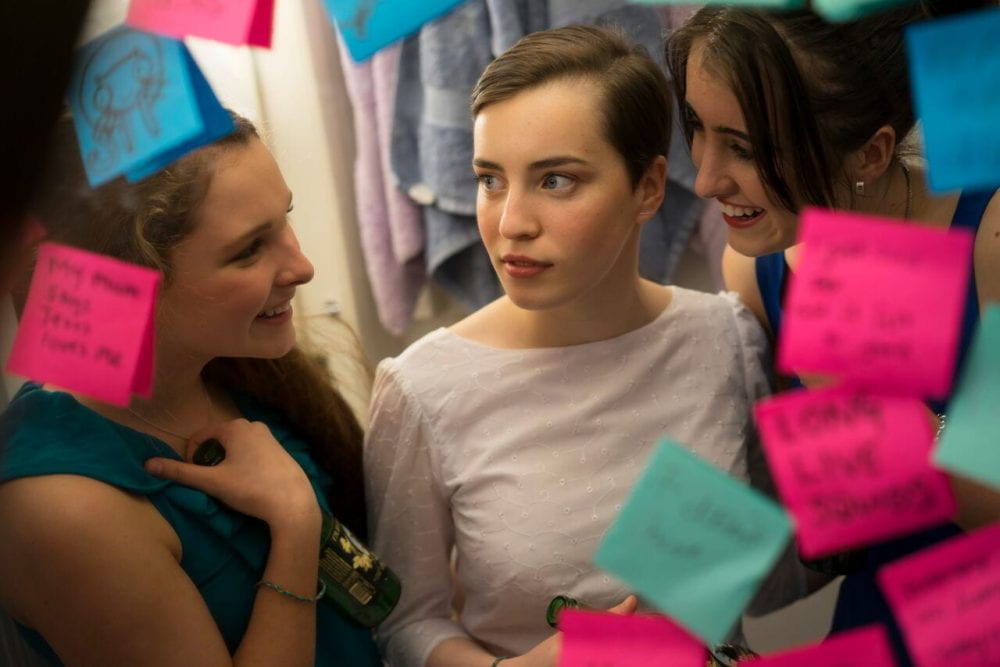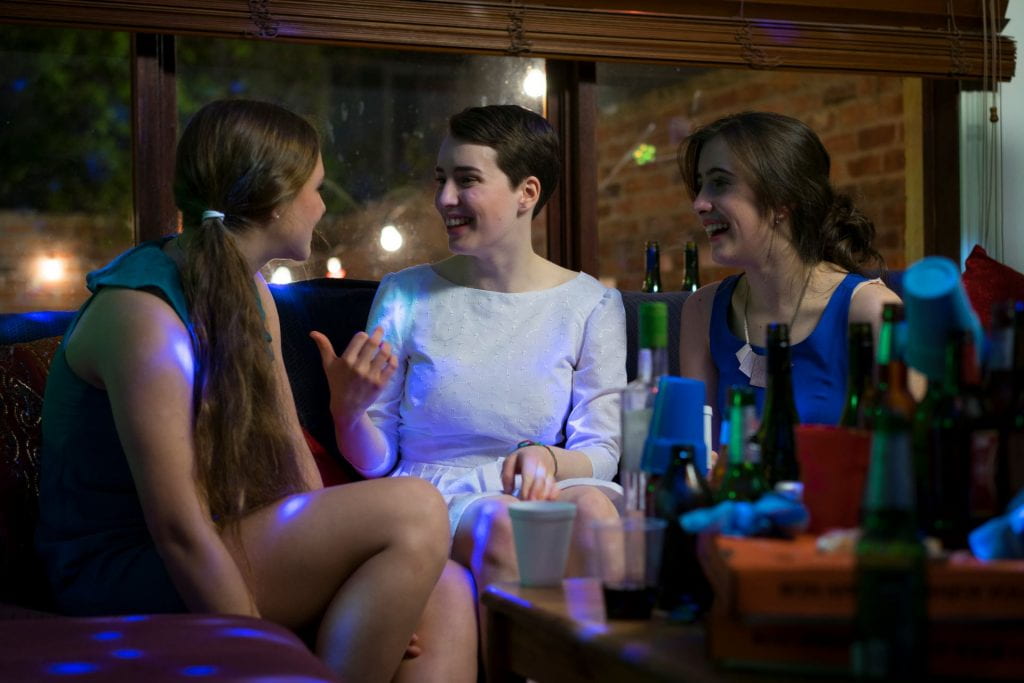VCA Digital Archive: menstruation as inspiration

The VCA Digital Archive is a living audiovisual record of student films that date back to 1966. The articles in this series respond thematically to the depth and breadth of the collection. Enjoy!
By India Murphy
The beginning of menstruation has always been linked to the female coming-of-age experience, both on screen and off. The first drops of blood signify that you are no longer a girl and are now blossoming into a young woman. But through television and film narratives, the act of first menstruating has been replaced by the “embarrassing period experience”. It has become a trope of the “coming-of-age” genre.
A female coming-of-age story is now incomplete without a character being mortified by period blood and receiving a negative reaction from their peers or male counterparts. The embarrassing period experience trope sits comfortably somewhere between the first-kiss and rebelling-against-authority-figures plot points.
We’ve seen it in Carrie (1976) with the traumatic shower scene, in Puberty Blues (2012) with Debbie doing the splits to reveal an unfortunate leak, and in Superbad (2007) as Johan Hill’s character says he is going to “f-cking throw up” when he finds blood on his pants after dancing with a girl.
The appearance of period blood only becomes mortifying after it is labelled “disgusting” or “weird” by a male character. The female character might later find comfort in other women such as her peers or a mother-like-figure, but the reassurance of the normality and natural act of menstruation is rarely reinforced by male characters.
And of course, these scenes aren’t too far removed from reality, with most girls able to recall an embarrassing story involving their period and a negative reaction from males. One friend tells of her “period explosion” at debating tournament which left a fellow teammate speechless, and another remembers attempting to tell a flustered male P.E. teacher that the red stain on her school dress was actually tomato sauce, not period blood.

The narratives on screen depict these events as brutally mortifying and the protagonist is forced to retreat into self-pity in order to deal (or plot revenge as seen in Carrie). But, in Woof! (2015), directed by Nina Buxton, we see the trope unfold with a fresh twist. Buxton’s protagonist doesn’t apologise or collapse with embarrassment. She owns her embarrassing period experience. She turns it into a feminist movement.
The film begins with the protagonist, a 16-year-old girl, changing her pad in the bathroom at a house party. She later flirts with an older guy, feeling surprised he is interested. They end up sitting on a bed in one of the empty bedrooms before making out while someone films the unfolding scene on an iPhone. The man’s fingers reach under the girl’s dress and then re-emerge covered in blood. He immediately freaks out, calling her disgusting and wiping the blood on her white dress.
The video quickly spreads through the party and the boys call her a dog. And she barks. The bark, almost primal in nature, takes them (and her) by surprise. She keeps barking. And soon, every girl in the party is barking at the group of boys.
Woof! turns the trope of an embarrassing period experience into an empowering one. The protagonist isn’t apologising for menstruating and is fighting back at the negative male perspective on period blood. The female coming-of-age experience is depicted as uncomfortable, awkward, yet boldly inspiring and exciting.
It is a young woman finding her power and owning her body and menstruation. It is the feminist coming-of-age story we need to see more of.
Some other notable films on coming of age in the VCA Digital Archive include:
NORTHKIDS. Jonnie Leahy. 2011. Drama.
In Jonnie’s words: “NORTHKIDS was an idea that had been bubbling around in my mind for a few years. I wanted to tell a story that revolved around urban youth and the time in life where you’re not a kid but still a long way from being an adult. Those moments of infinite possibility. It’s easy to believe your invincible when you’re young.
“The film performed modestly at festivals internationally but was a really great calling card for getting my first feature up: Skin Deep (2014).
Skin Deep is the story of two young women who meet and spend a night together in Sydney’s Newtown. Very much a sister film to NORTHKIDS. Skin Deep played at more than a dozen international film festivals, had a local cinema release, though very modest, and played on Australian TV. It also got me an Australian Directors’ Guild nomination for Best Feature Film in 2017.
“I have a deep affection for NORTHKIDS. It was the most complete and, I feel, well-realised film I made during my four years at the VCA.”
Under the Table. Max Walter. 2015. Comedy.
Small Change. Anna McGrath. 2007. Drama.
Amaretta. Hana Maeorg. 2017. Comedy.
Banner image: Still from Woof! (2015). By Nina Buxton.
India Murphy is an emerging screenwriter and playwright, with experience in directing, acting and production. India aims to create immersive and engaging content for the youth demographic in the mediums of film, television, theatre and social media. www.india-alessandra.com
The VCA Digital Archive series of articles was commissioned as part of a grant from the University of Melbourne, Student Services Amenities Fee. University of Melbourne staff and students and some industry people dipped into the FTV archive and watched films based on themes. The idea was to use the archive as stimulus to curate and create. Some responses are completely creative, others are reviews, others are word art pieces.
The full collection will be available for research from mid-2019. In the meantime you can find a selection of more than 100 films live on our YouTube page. To find out more, visit the VCA Digital Archive Project Page.